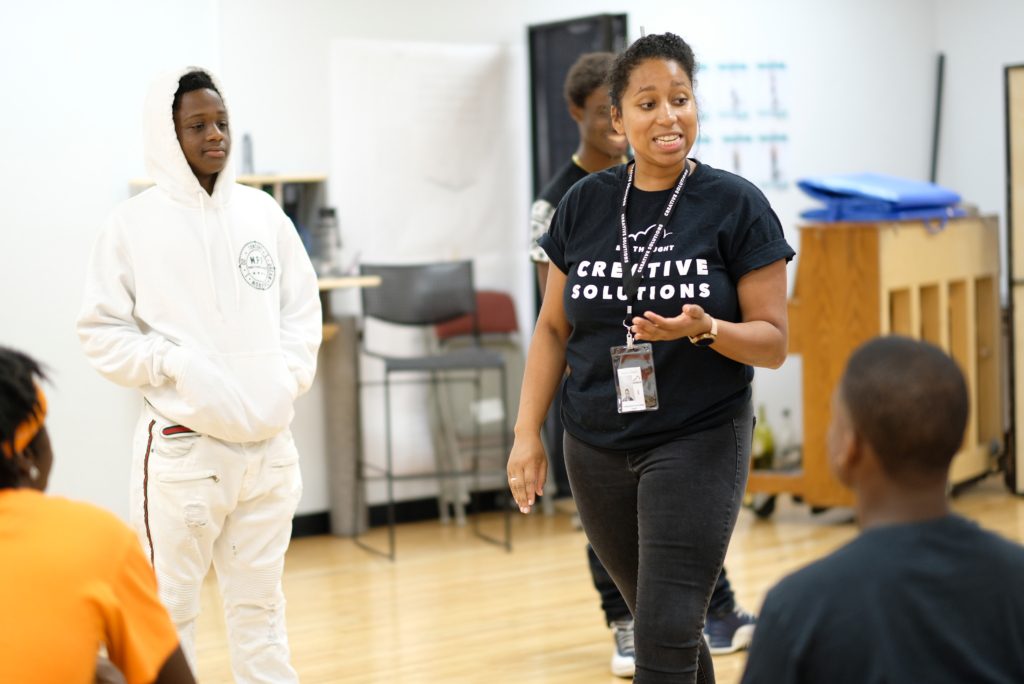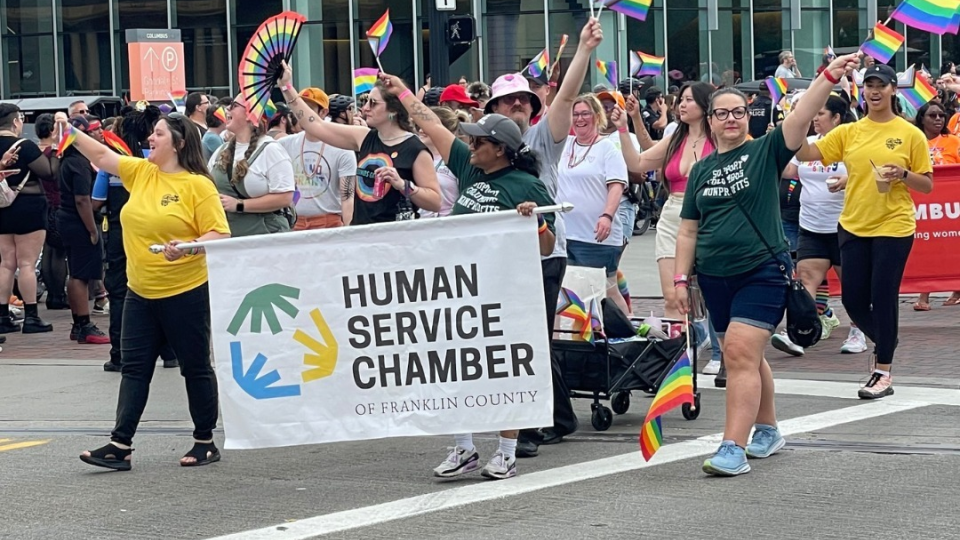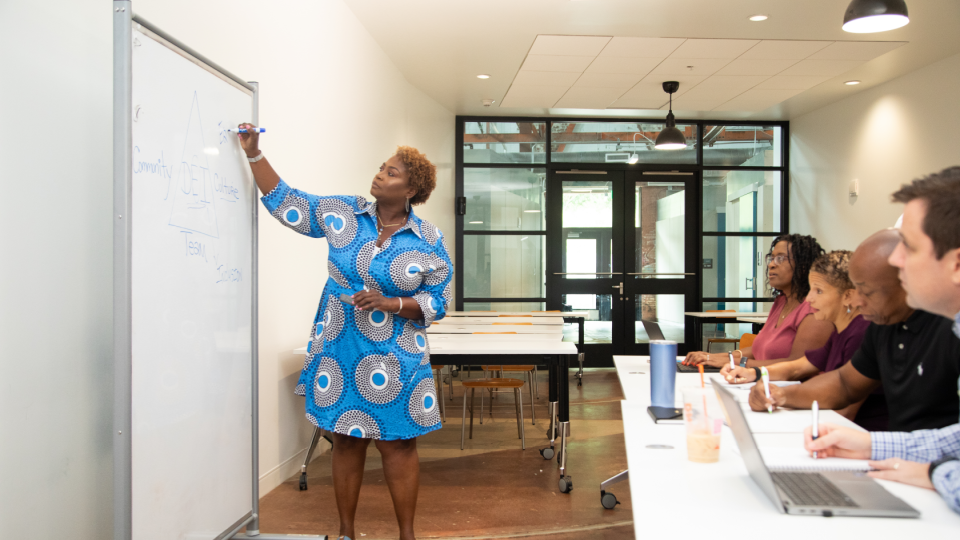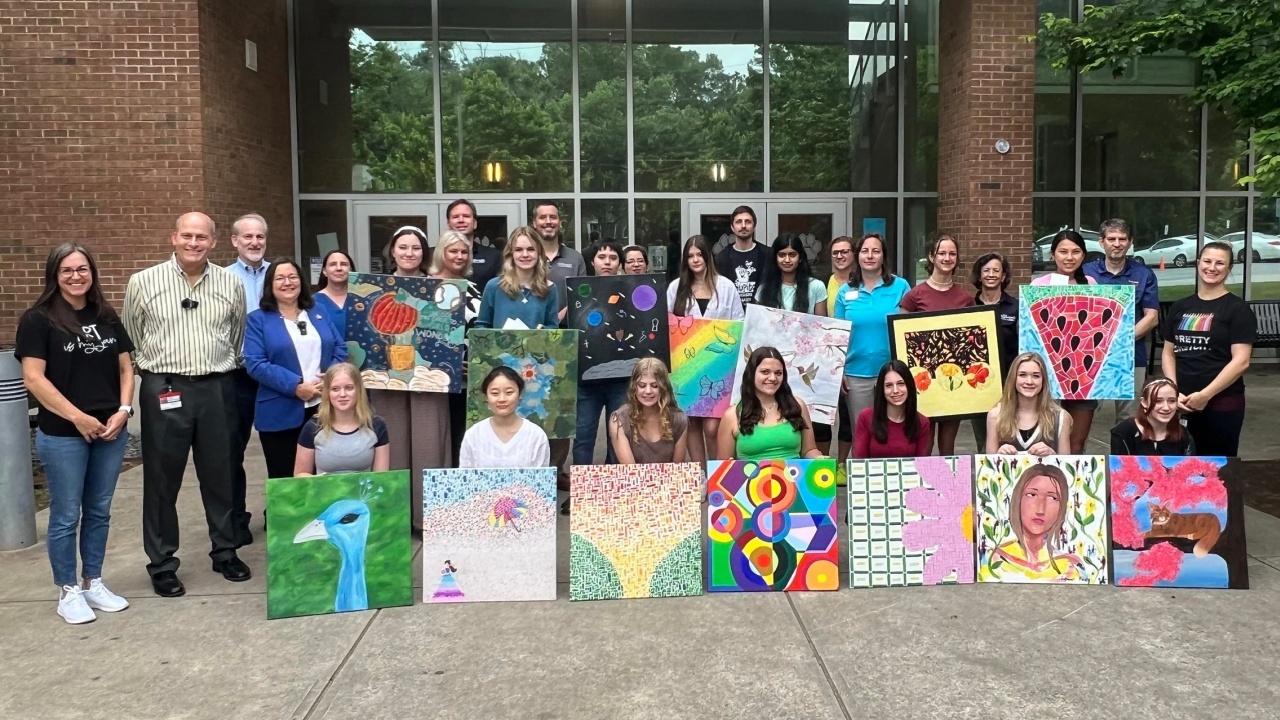We all know the “secret sauce” touted by a well-known food enterprise. But there’s another secret sauce. It’s a sauce made of social and emotional focus, experiential learning, community-centered partnerships, an equity lens, and future focus – all combined by nonprofit Big Thought to unlock the creative potential so all youth can realize their inner greatness.
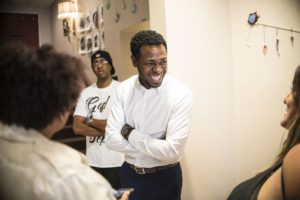
Byron Sanders. Photo courtesy of Big Thought
The Dallas-based organization and Independent Sector member was recently recognized by D CEO Business and Communities Foundation of Texas (also an Independent Sector member) as “Organization of the Year” for its work to facilitate brighter futures for youth who have historically been held back at the starting line.
We talked with Byron Sanders, President and CEO of Big Thought, about their mission and his commitment to advocate for youth, education, economic development, and creating equitable communities.
IS: Big Thought is referred to as an “impact nonprofit.” Tell us what that means to you, and about your work to close the opportunity gap for youth in marginalized communities.
BS: One of our Big Thought values is “create impact for youth we will never meet.” That’s a very clear compass for us. It means every single thing we do needs to be about two things, but those two things equally.

Photo courtesy of Big Thought
One, we need to create the highest quality experiences that will have a life-changing effect for the youth we are fortunate enough to have in our programs. But two, we need to be doing so with the express purposes of learning some new insight that advances the field of youth development and is able to scale to additional programmatic partners or change systems and institutions. Our calling is not just to affect the lives of youth in our immediate area, but our work needs to be ultimately about systems change.
IS: Big Thought takes three main approaches to help all young people maximize their potential in a 21st century world – direct to youth programs, learning systems, and Big Thought Institute. Tell us about the focus of each approach.
BS: In line with what I’ve already shared, we believe you get to systemic impact by doing three things well. Impact, Influence, and Institute. Big Thought Programs are the Big Thought-designed programs and experiences our staff executes directly with young creators. This work then informs how we facilitate Big Thought Learning Systems.
Learning Systems is where Big Thought serves as collective impact to move a wide array of partners toward a common goal. It involves capacity building, professional learning, funding, data sharing, and coordinated collaboration. But the big idea is scaling what we know works with partners, based on our own work over the years and helping leverage a broader collective’s strengths to meet a community need.
Lastly, is Big Thought Institute, which is our consulting practice. Our clients are school districts, state agencies, corporations, community-based organizations where we bring to bear the different strengths that we’ve built in our field to meet a client’s needs. It serves as a means of institutional change and revenue producing that goes back to the mission.
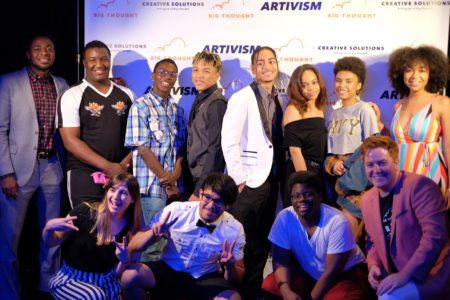
Photo courtesy of Big Thought
IS: The name of your nonprofit was adopted in 2004 to reflect the organization’s broadened scope and vision. Can you give us a little background on how the organization began and has expanded over the years?
BS: We first began as exclusively an arts education organization. We were the Dallas affiliate of Young Audiences, a national nonprofit focused on arts learning in schools. Because of the new opportunities made possible by IS member The Wallace Foundation, and 21st Century resources, Big Thought’s team was in position to be a critical partner with the city of Dallas and Dallas Independent School District.
First, it was building out a large arts education ecosystem. Then, it was creating and facilitating a city-wide, out-of-school time system, then a massive summer initiative, and, latest, a system of creating social-emotional learning both in the school day and afterschool. Each one of these major initiatives built on the last innovation and resulted in new sustainable capacity for the region.
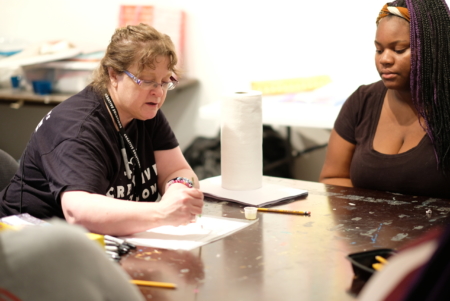
Photo courtesy of Big Thought
Today, Big Thought has programs in both Dallas and Tarrant counties, facilitates ecosystems along with hundreds of partners and sites, and consults with education institutions and private enterprises all over the nation through Big Thought Institute. One of the values of the organization demanded that we use the depth of our programs to inform greater scale of impact – create impact for youth we will never meet. This is about systems change, not just excellent programming.
IS: Your professional career and expertise span the fields of banking and finance, education, philanthropy, and entrepreneurism. What appealed to you about becoming President and CEO of Big Thought?
BS: In a word: purpose. Every step along my professional journey since I distilled my own personal mission statement has been intentionally and painstakingly filtered through my purpose. I genuinely believe we’re all here for a reason, one that invariably relates to our ability to affect another person’s life in a positive, liberating way. In 2007, I distilled that my purpose was tethered to youth empowerment. If we build a society with youth at the center, then we will have a better society, period. Because that society realizes the entire household needs to be equipped for young people’s well-being.
Through this youth-centered lens, we can acknowledge that there needs to be multi-sector collaboration for a world where youth in the most marginalized spaces have full access to opportunity – Big Thought was the next step on a journey for me to contribute toward this manifestation. The team that was here, the work that had already been built, the unique partnerships that the organization had curated – I saw a team I wanted to not just be in a governance relationship with from the board, but a place where my experiences, strengths, and, honestly, weaknesses belonged. I saw a team that was a puzzle-perfect fit for us to build something special together that not just served youth well, but could begin to change hearts and minds about what those youth – well served – could actually mean for society.
IS: How do you hope being an IS member – and part of our larger member community – will help you advance your mission?
BS: This work is hard. We are swimming against the tides of systems that have perpetuated racial inequity built on a false premise of hierarchy of human value. No one person, organization, or municipality can reverse that unnatural flow of inopportunity alone. Being a member of IS gives us a community to share the best of what’s working, and the lessons learned from what’s not. It curates a tribe of like-spirited organizations that may be working in different sectors or geographies whose collision with each other can create the shockwaves that shocks the system into long-term systemic change.
IS: If you could leave one thought about “Big Thought” with our ChangeWorks readers, what would that be?
BS: We are not content to just have strong outcomes of our programs and systems. We believe instead that the strong outcomes give us moral and tactical authority to share what we learn that needs to scale. It’s why we’ve made investment in advocacy, why we started a consulting practice, and why we are making new investments in storytelling with youth voice at the forefront.
Yes, we are here to find out what works. And we are here to tell that story. After all, if we’re trying to create impact for youth we will never meet, there isn’t any other way. Creating creators for the 21st century world – this is the work that will save us all.
Debra Rainey is communications manager at Independent Sector. The top photo is courtesy of Big Thought. Learn about other Independent Sector members and becoming a member.
